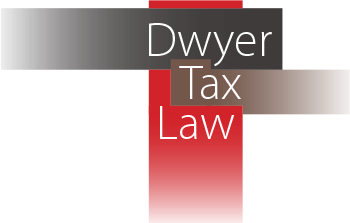
Executive Functioning Skills with Sarah Ward: A Webinar Series

Level: Beginner to Intermediate
For: Parents, caregivers, family members, Autistic youth and adults, and professionals
Autism Specific?: No
Automatic captioning and ASL interpretation will be provided at the event.



Executive Functioning Skills with Sarah Ward: A Webinar Series
For Autistic individuals, caregivers, and professionals
Thursdays, September 12, 19, 26 &
Tuesday, October 15, 2024
3:00 pm – 5:00 pm
Presented by Sarah Ward, M.S., CCC-SLP
Web Streaming Live
Recording available for 30 days following each series, for all registrants.
Join Sarah Ward for a four-part webinar series this Fall. The interactive sessions will focus on developing executive functioning skills and building a supportive community.
In this webinar series, participants will learn about:
- Expert Guidance: Benefit from the extensive expertise and experience of Sarah Ward in the field of Executive Functioning.
- Practical Strategies: Acquire actionable tips and techniques to enhance your executive functioning skills in real-world scenarios.
- Community Building: Foster connections with fellow participants, exchange experiences, and cultivate a supportive network.



Sign in to use your 10% Friends of ACT Discount, or register here.
Event Details
The 360 Thinking Executive Function Curriculum is designed to develop independent executive function skills. Whether this is your first or your fifth time hearing Sarah Ward and or you are familiar with the program, this webinar will provide new insights and reinforce your understanding of the core features.
Executive function (EF) skills are essential attention-regulation abilities that allow individuals to sustain attention, keep goals and information in mind, refrain from immediate response, resist distraction, tolerate frustration, consider the consequences of different behaviors, reflect on past experiences, and plan for the future. The 360 Thinking program facilitates the development of 6 key skills: initiation, transition, planning, time management, self-regulation and meta-cognition. By reading the room and envisioning the steps of a task, potential obstacles can be anticipated and you or your students can develop problem-solving skills and independence.
During this practical strategies webinar, we will:
- Define Executive Function skills for interventions
- Explore concepts such as “mind MIME” and forethought skills
- Provide strategies to decrease impulsivity and enhance self-regulation
- Teach techniques for goal-directed behavior and self-regulation
- Share practical strategies to teach yourself/students to see, sense and monitor the passage of time
- Interventions to assist yourself/teach students to simulate, organize, initiate and persist to complete tasks
Objectives:
- State a functional working definition of “executive function skills” in the context of therapeutic interventions.
- Identify the typical developmental course of executive function skills and define Executive Dysfunction.
- Explain how situational awareness, self-talk, forethought, gesture/movement, and episodic memory form the foundational skills for successful task execution.
- Develop an intervention program that fosters your/your students’ ability to form more independent executive function skills by describing therapeutic activities to improve:
- Situational awareness and forethought
- Task planning, initiation, and transitions within and between tasks
- Active self-management related to the passage of time (sequence, duration, analog time, time markers)
- Organized thinking
Increase processing speed. In the fast-paced and ever-evolving world, the ability to process information quickly and efficiently is crucial. A highlight of the lecture will be the discussion on the new revolution in our understanding of processing speed: what it truly means, how it is measured, and most importantly, how it can be improved.
This discussion will form the theoretical backbone of the session, guiding the introduction of practical strategies. Whether it’s making decisions, analyzing and following directions, or even navigating through daily life activities, speed of information processing is a critical cognitive skill. Executive function challenges, processing speed and behavior deficits often go hand-in-hand.
Processing speed difficulties can limit productivity and executive function skills to complete routines; follow instructions; finish homework; listen/read and take notes/summarize; integrate and encode information; write assignments that require complex thoughts; transition between tasks; acquire new material; and reason under time demands.
Slow processing speed can bog you/your students down in the details and you/they can’t distinguish relevant from minor details and see the big picture. Learn practical strategies to improve processing speed to increase the automaticity with which students can follow routines and directions, complete tasks, and manage complex assignments.
Objectives:
- Summarize the relationship between speed of information processing and executive function skills.
- Describe 5 therapy interventions that use block and box schema training to improve your/your student’s schematic knowledge for following routines, making decisions, processing time, processing and responding to oral and written information and planning tasks.
- Describe how to use visual processing and conditional reasoning schemas to quickly process figurative language.
Writing is the ultimate executive function skill as it requires massive amounts of simultaneous “online” processing. This presentation will reveal the complexities underlying why writing presents a significant challenge for individuals with executive function issues and is the area where teachers frequently observe work avoidance and an increase in self-regulation challenges and behaviors.
Learn how to infuse executive function based instruction into writing assignments in all subjects that require writing.
Learn to develop/support students in developing executive control for the writing process, to improve initiation of writing tasks, to increase the quality and volume of their thought retrieval, to expand on their ideas and to use metacognition to evaluate the quality of their writing and to be sure their written expression meets task requirements.
Learn cool ‘tech tools’ for writing! The goal is to foster student independence, reducing the need for teacher-led scribing or prompting and averting learned helplessness for task engagement and writing tasks.
Objectives:
- Summarize the relationship between written expression and executive function skills.
- Describe 5 interventions that improve retrieval and organization of ideas for writing tasks.
- Implement 2 strategies to decrease student dependence on teacher-led scribing.
At school? Learning at home? Hybrid learning? Whether you or your student needs to complete homework or just do classwork, in this practical strategies seminar you will learn concrete tools to help manage attention, time and materials to successfully record, break down, complete and submit assignments.
Practical strategies will be given to help with the initiation of difficult assignments and to ensure work is returned in a timely manner. Prevent overwhelm and learn/teach students how to accurately size up assignments and accurately determine the time required to do the work.
The homework space: Learn tricks for supporting yourself/your students and their families in creating a positive and productive environment at home for learning – regardless of whether it is the space for remote learning or for completing homework – and even if you as an educator, do not go home with the student!
Objectives:
- Enhance Assignment Management Skills
- At School: Learn practical strategies to manage attention, time, and materials effectively during classwork.
- Learning at Home: Acquire tools to break down assignments, record important information, and complete tasks efficiently.
- Hybrid Learning: Develop skills to initiate challenging assignments and ensure timely submission.
- Mitigate Overwhelm and Optimize Workload
List strategies to learn/teach students how to accurately assess the size and complexity of assignments. - Create a Productive Homework Space
- At School: List interventions for supporting yourself/your students’ families in establishing positive and productive learning environments at home.
- Learning at Home: You/families will receive practical tips for creating an optimal homework space, whether for remote learning or completing assignments. Hybrid Learning: Strategies will be shared to foster a conducive learning environment, even when educators are not physically present with the student.
Sarah Ward



Sarah Ward has over 25 years of experience in diagnostic evaluations and treatment of executive dysfunction. Ms. Ward holds a faculty appointment at the Massachusetts General Hospital Institute of Health Professions. She is an internationally recognized expert on executive function and presents seminars and workshops on the programs and strategies she has developed with the Co-Director of Cognitive Connections, Kristen Jacobsen. Their 360 Thinking Executive Function Program received the Innovative Promising Practices Award from the National Organization CHADD. She has presented to and consulted with over 1200 public and private schools in Massachusetts and across the United States and Canada.
Visit Sarah Ward’s website, Cognitive Connections, for more information about Executive Functioning – you will find many free resources.
Session 1: Thursday, September 12, 2024, 3:00 pm – 5:00 pm
Session 2: Thursday, September 19, 2024, 3:00 pm – 5:00 pm
Session 3: Thursday, September 26, 2024, 3:00 pm – 5:00 pm
Session 4: Tuesday, October 15, 2024, 3:00 pm – 5:00 pm
All times Pacific Time
Professionals
- Early Bird Rate until June 27, 2024: $270
- Regular rate starting June 28, 2024: $320
Family Members, Autistic Adults & Students
- Early Bird Rate until June 27, 2024: $220
- Regular rate starting June 28, 2024: $270
*Last day to register is Monday, September 9, 2024
Group Discounts
Registering 3 or more attendees at a time? Receive a 10% discount!
Friends of ACT Receive 10% Off
Join here to become a Friend of ACT. This FREE program keeps you up to date with all the latest events and resources from ACT, and provides a 10% discount on a single ticket for all events.
Bursaries
ACT wants to ensure equitable access to all events. Bursaries are available where registration cost is a barrier. Full bursaries are available for Indigenous people/people who work at organizations that support Indigenous people. You are encouraged to apply for bursaries as soon as possible, as funds are limited.
Apply by completing ACT’s Bursary Form before Thursday, September 5, 2024. If you identify as Indigenous, or work for an Indigenous organization, complete our Bursary Form for Indigenous Communities.
Autism Funding
If you wish to use your child’s Autism Funding to pay for your registration, ACT can invoice the Autism Funding Branch directly. If you are paying in advance to be reimbursed, you must contact the Autism Funding Branch for approval first.
For information on how to register with your Autism Funding, visit Workshop Registration Using Autism Funding.
This section is hidden